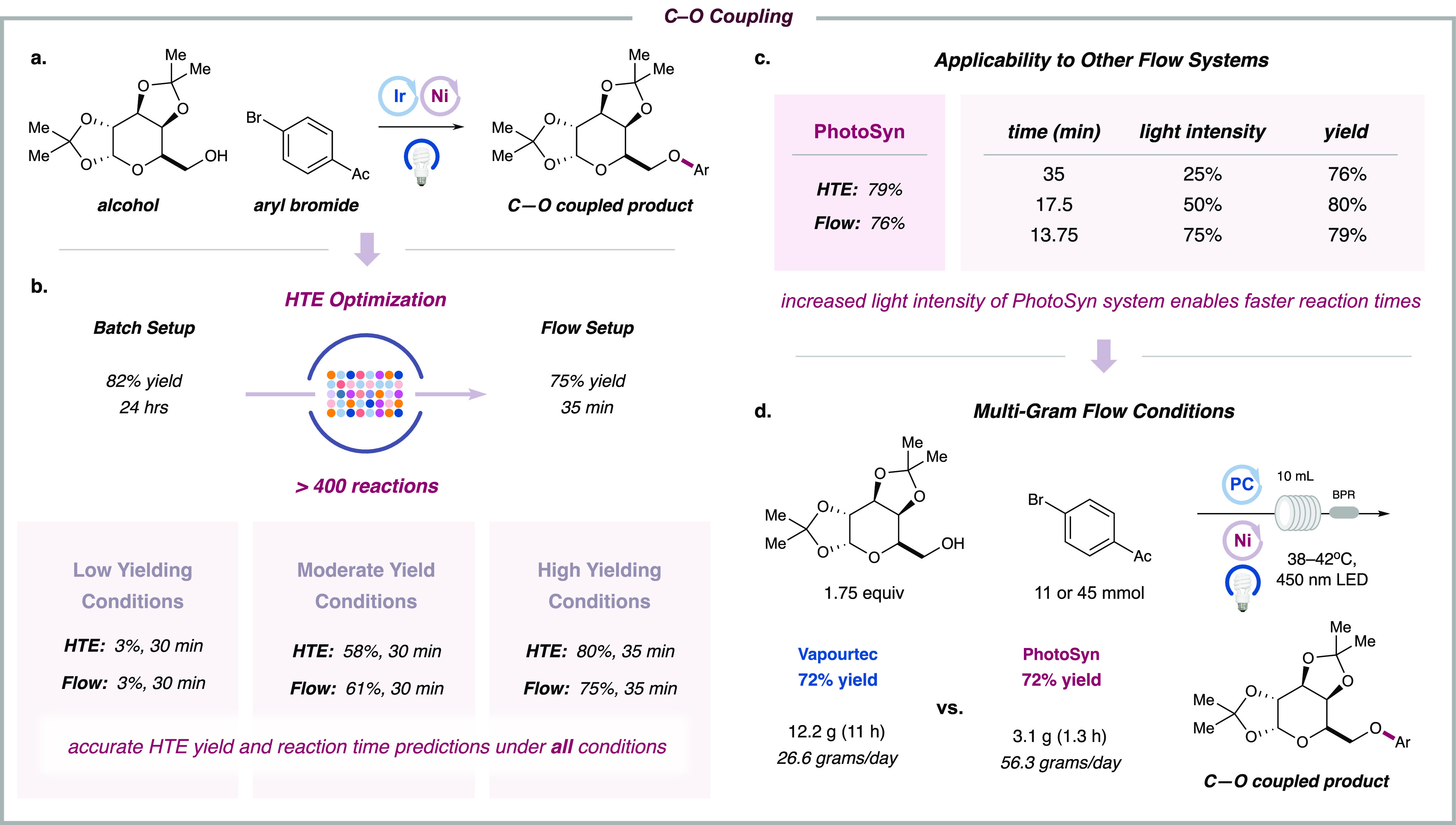Figure 5.

Application for C–O coupling reaction. (a) The reaction takes place between protected pyranose and 4-bromo-acetophenone merging nickel and photoredox catalysis. (b) With the workflow shown using 456 nm Kessil LEDs, followed by HTE optimization and the corresponding UPLC analysis, we could obtain in a flow system the desired product (75% yield) in 35 min of residence time instead 24 h of reaction time using a standard setup. Optimization using our HTE protocol provides a range of conditions, which we could translate successfully to the flow system. (c) The efficiency of our protocol was also proved by using a powerful continuous-flow system (PhotoSyn). Using the 25% light intensity, we could observe a correlated result with our HTE setup. Furthermore, increasing the light intensity, we were able to reduce the reaction time with no changes on the reactivity. (d) The effectivity of this reaction has been proved for both continuous-flow systems affording the same reactivity (72% yield), resulting in a higher efficiency for the more powerful flow system (26.6 g/day for Vapourtec and 56.3 g/day using PhotoSyn.
